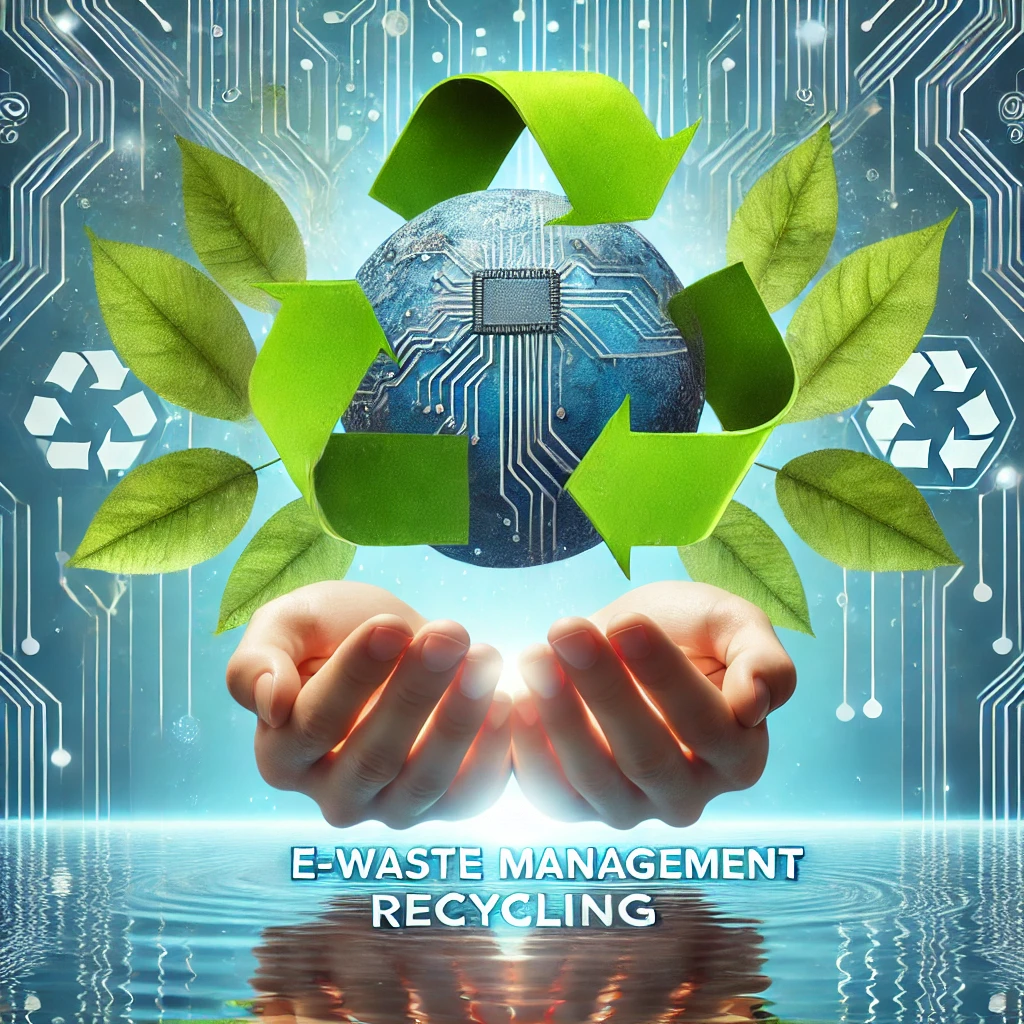
As a prime telecom engineering and consultancy firm, we at TCIL also offer integrated, end-to-end services for responsible disposal and recycling of end of life IT assets, telecom equipment and electronics. With electronic waste becoming a major environmental concern in the country, TCIL has stepped in to provide a proper, environmentally responsible and sustainable solution for e-waste management.

E-waste or electronic waste refers to old electrical and electronic equipment that have reached the end of their life. E-waste contains numerous toxins, which if not disposed in an appropriate manner can cause environmental pollution and health hazards. Apart from toxins e-waste also contains resources like metals and rare earths which can be recovered and reused. Proper recycling of e-waste can help ensure that these resources are extracted from e-waste while the toxins are disposed responsibly.

In order to ensure that e-waste is handled in an eco-friendly and responsible manner, the Govt. of India set up the E-waste (Management and Handling) Rules. The Rules came into effect in May 2012, and apply to every producer, consumer or bulk consumer involved in the manufacture, sale, purchase and processing of electrical and electronic equipment or components, as well as collection centre, dismantler and recycler of e-waste. These rules hold these stakeholders responsible for complying with the mentioned guidelines and failure to do so results in severe penalties for non-compliant entities. By offering e-waste recycling services, TCIL helps both bulk consumers and producers comply with these responsibilities and regulations.
- Consumers of electrical and electronic equipment shall ensure that e-waste are deposited with the dealer or authorized collection centers.
- Bulk consumers of electrical and electronic equipment shall ensure that e-waste are auctioned to or deposited with the dealer or authorized collection centers or refurbisher or registered dismantler or recyclers or avail the pick-up or take back services provided by the producers; and
- Bulk consumers shall file annual returns in Form 3, to the concerned State Pollution Control Board or Pollution Control Committee on or before the 30th day of June following to the financial year to which that return relates.
- Every producer(s), dealer(s), collection centre(s), refurbisher(s), dismantler(s), recycler(s), auctioneer(s) consumer(s) or bulk consumer(s) shall not import used electrical and electronic equipment in India for use

- Collection of e-waste generated during the manufacture of electrical and electronic equipment and channelizing the same for recycling or disposal.
- Collection of e-waste generated from the 'end of life' of their products in line with the principle of 'Extended Producer Responsibility' (EPR), and to ensure that such e-wastes are channelized to registered refurbisher or dismantler or recycler.
- Setting up collection centers or take back system either individually or collectively for all electrical and electronic equipment at the end of their life.
- Financing, and organizing a system to meet the costs involved in the environmentally sound management of e-waste generated from the 'end of life' of its own products and historical waste available on the date from which these rules come in to force. Such financing system shall be transparent. The producer may choose to establish such financial system either individually or by joining a collective scheme.
- Providing contact details such as address, telephone numbers/helpline number and e-mail of distributors and authorized collection centers to consumer(s) or bulk consumer(s) so as to facilitate return of used electrical and electronic equipment.
- Creating awareness through publications, advertisements, posters, or by any other means of communication and information booklets accompanying the equipment, with regard to the following:
- information on hazardous constituents in e-waste electrical and electronic equipment
- information on hazards of improper handling, accidental breakage, damage and/or improper recycling of e-waste
- instructions for handling the equipment after its use, along with the Do's and Don'ts ;
- affixing the symbol given below on the products to prevent e-waste from being dropped in garbage bins containing waste destined for disposal;
- Obtaining an authorization from the concerned State Pollution Control Board or Pollution Control Committee in accordance with the procedures prescribed under rule-11;
- Maintaining records in Form 2 of the e-waste handled Such records should be available for scrutiny by the appropriate authority.
- Filing annual returns in Form 3, to the concerned State Pollution Control Board or Pollution Control Committee, on or before the 30th day of June following to the financial year to which that return relates.
